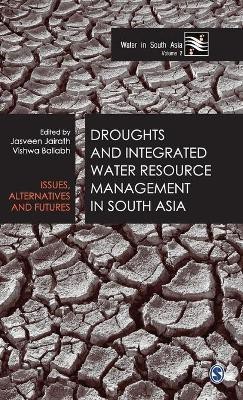Droughts and Integrated Water Resource Management in South Asia(English, Hardcover, unknown)
Quick Overview
Product Price Comparison
Droughts have formed an inseparable part of South Asian history and culture, with tragic consequences for a region that houses the greatest number of the world's poor. However, this volume challenges the popular conception of drought, which is presented as an absolute shortage-scarcity with respect to an implicit understanding of the sufficiency of water. It highlights the fact that while available water supplies may be a given quantum, droughts are differentially experienced, politically inspired and socially constituted. It emphasises that the relative water scarcity needs to be appreciated, and argues that water scarcity means different things for diverse constituencies of water users. Policy prescriptions based on definitional premises will be flawed, as a misrepresentation of drought as merely water scarcity serves a political agenda. The editors and contributors of this volume critically evaluate the concept of drought, the way it is defined, its origin/derivation, and the purposes/interests it serves. This book is broadly divided into three major sections: the thematic section, country overviews, and case studies. Through these, it attempts to: - Understand the concept of drought. - Map diversity in drought situations across South Asia. - Identify responses to drought. - Outline viable options for more integrated approaches to drought policies and mitigation strategies. - Initiate a process of dialogue on a more comprehensive public policy for drought management. Comprehensive, thought-provoking, informative, and featuring new research data, this collection will provide policy makers and professionals with the opportunity to discuss and debate policies for sustainable livelihood support systems and drought management. It would also be an invaluable source of information for students and teachers working in the fields of Water and Natural Resource Management, Environmental Planning, Agricultural Economics, Rural Development, Public Policy and Public Administration.


